One of the greatest influences in my life has been Catholic education. In my Catholic parochial grade school, I first learned what it meant to be a follower of Jesus. Through my high school, I built friendships that still sustain me today. My time at a Jesuit university taught me to expand the love of God into a very real love for all and to seek people’s genuine flourishing. Looking back from my current career as a pastoral minister, I see that Catholic education molded me in deep ways at every step of my schooling.
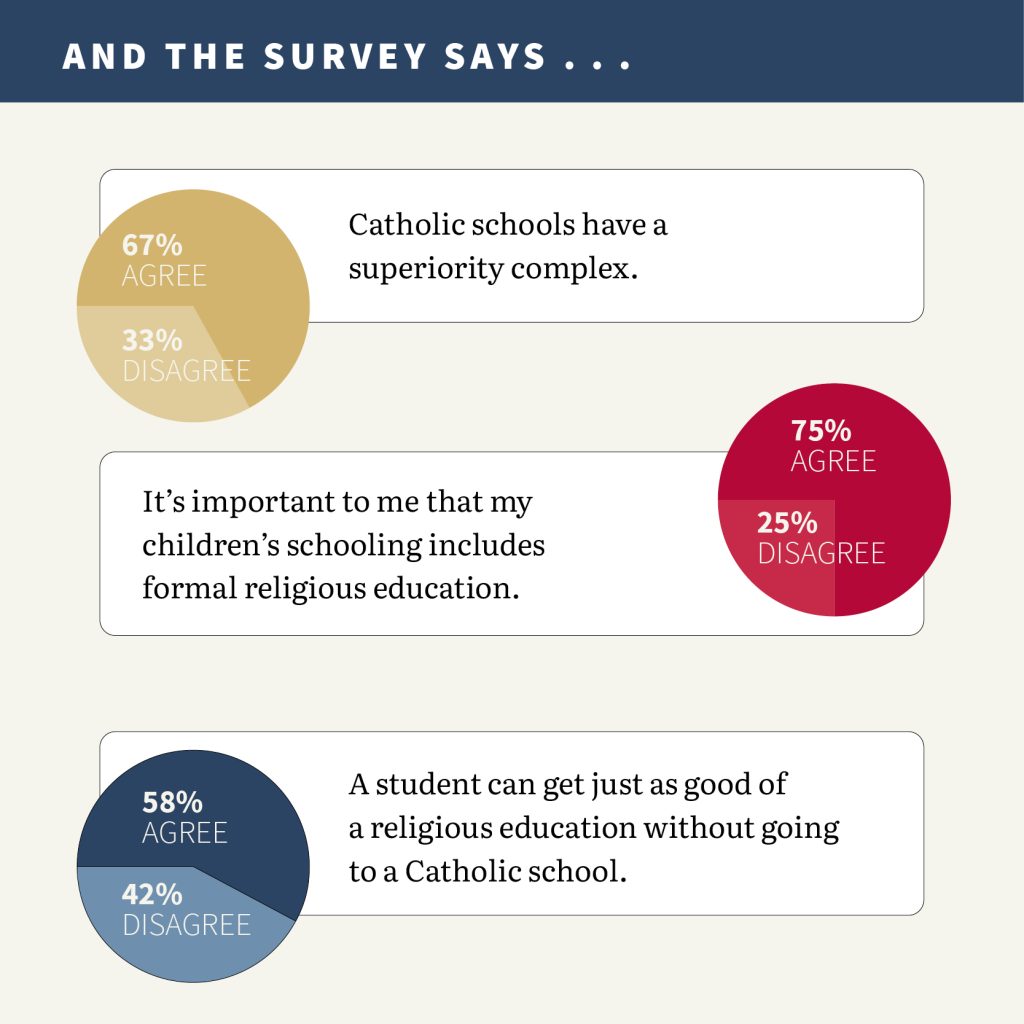
It is because of this love for Catholic education that I was disturbed by a trend I saw during Catholic Schools Week, which promoted Catholic education at the expense of local public schools. I saw a Catholic school in one of the wealthiest parts of its region post on its social media the graduation rate for Catholic schools and public schools, with the Catholic rate double the public rate. This social media post lacked both specificity (were these schools compared regionally, nationally, or globally?) and citations. These specific posts made me remember other posts from the height of the pandemic where Catholic schools specifically promoted their schools as in-person alternatives to public schools, which, for public health reasons, remained online.
I believe that to promote Catholic schools at the expense of public education is to fall into the binary and divisive thinking from which Pope Francis and the wider Catholic tradition invites all members of the faithful to renounce. Public schools often are exceptional at welcoming and including people from a variety of backgrounds, a characteristic unfortunately missing from many of our parishes, ministries, and schools. Public schools are also staffed by and filled with Catholic teachers, support staff, and students who feel ostracized or “othered” in their Catholic communities by their being in or connected to public education. I know at least one person in ministry who went through a public education system and felt like an outsider at his parish growing up because he didn’t go to the local Catholic school. Instead of being places where people can meet their God and experience koinonia, or authentic community rooted in the Spirit, Catholic schools can be clubs that look down on other forms of education.
Pope Francis has made synodality the hallmark of his pontificate. Put simply, synodality is a mode of church that emphasizes walking together. Everyone from the pope to your neighbor in the next pew to your parish priest are all on the same journey of building God’s kingdom. This deep fraternity extends even beyond the walls of the church. Informed by the documents of the Second Vatican Council, Pope Francis calls on the world to practice social friendship. In at least one part of Fratelli Tutti (On Fraternity and Social Friendship), Francis defines this as: “A love capable of transcending borders is the basis of what in every city and country can be called ‘social friendship.’ Genuine social friendship within a society makes true universal openness possible.”
When one practices one’s Christianity in a synodal mode, the divisions in our country and church become more stark. One starts to see how segregated many of our parishes are by race, class, theology, political affiliation, and openness to those of differing sexual and gender identities. One sees the segregation of neighborhoods rooted in historic racial discrimination and modern wealth inequality. One becomes more disturbed about how political differences and culture wars separate those whom Jesus called to “all be one.” Many of these division lines often go unchallenged or unnamed. One such line is that between Catholic and public schools.
So, what can be done? I believe that Catholic schools can promote their unique style of education to the world on its own merits instead of using public education as a foil. There are many good reasons to send one’s kids to Catholic schools. Thomas Groome, professor of theology and religious education at Boston College School of Theology and Ministry, has argued that Catholic education can give students a sense of morality in a world dominated by market thinking. At a Catholic school, students don’t just receive an education to become a good middle manager at an accounting firm. They are in deep formation to think about why they might want to work at an accounting firm and what good they can do in that specific job. This is a worthwhile benefit of Catholic education in and of itself.
On the individual level, Catholics can carefully consider how they think and talk about public education. Instead of sharing divisive opinions, Catholics should start seeing public schools as spaces where our siblings in the faith and in humanity go for an education. The Spirit is just as alive in the halls and classes of public schools as it is in our Catholic schools. As Jesus said, referring to the Holy Spirit, the “wind blows where it wills.”
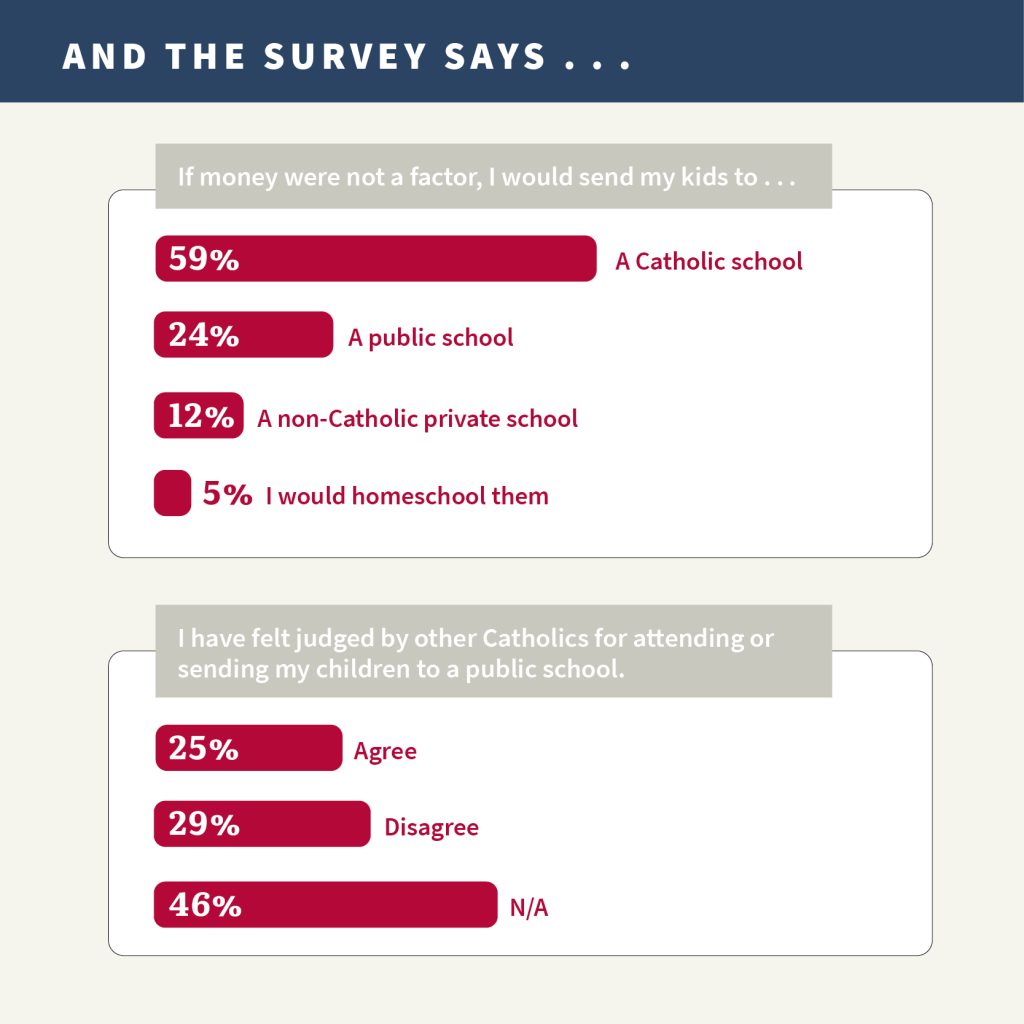
On the parish level, Catholic communities can work to support public schools as a system and as individual schools where they can. Many school systems are always in need of volunteers to staff their science fairs, graduations, field trips, and other events. What if Catholic leaders motivated their people to fill in the gaps where they could? Parishes can also be spaces that local public schools use for programming that supports children. My own city of Chicago has the Safe Haven program where mosques, churches, and synagogues can open their doors to local public school students to have extra learning time outside the normal school day. If Catholic communities are being called to “enlarge the space of your tent” as the recent document for the continental stage for the Synod on Synodality suggests, we can open wide our parish doors to our siblings in public education.
On the diocesan level, Catholic leaders can ask if the spiritual needs of the staff, children, and faculty of public schools are being met. A modest proposal would be to assign a chaplain, ordained or otherwise, to the public school system or the local teacher and staff union. While respecting the necessary separation of church and state, this chaplain can make sure that teachers, students, and staff can connect to the wider Catholic community.
Some might oppose this proposal, saying that public educator unions and systems do not share Catholic values or align with “core beliefs” of the church. I would remind these detractors that many large metropolitan areas already have police chaplains who attend to the spiritual well-being of Catholics in an ostensibly secular public service. These chaplains do the important and necessary work of spiritual support for our siblings in uniform even when they sometimes act against core Catholic teaching by brutalizing our Black siblings both within the faith and outside of it. Even though public education and Catholic teaching do not always align, that reality should not stop the church from ministering to those within it.
If we are truly going to journey together as Pope Francis calls us to do, we have to name and cross the lines that divide us. Catholic education is a beautiful gift to give our children, but we should not give that gift to them at the expense of our siblings in public education.
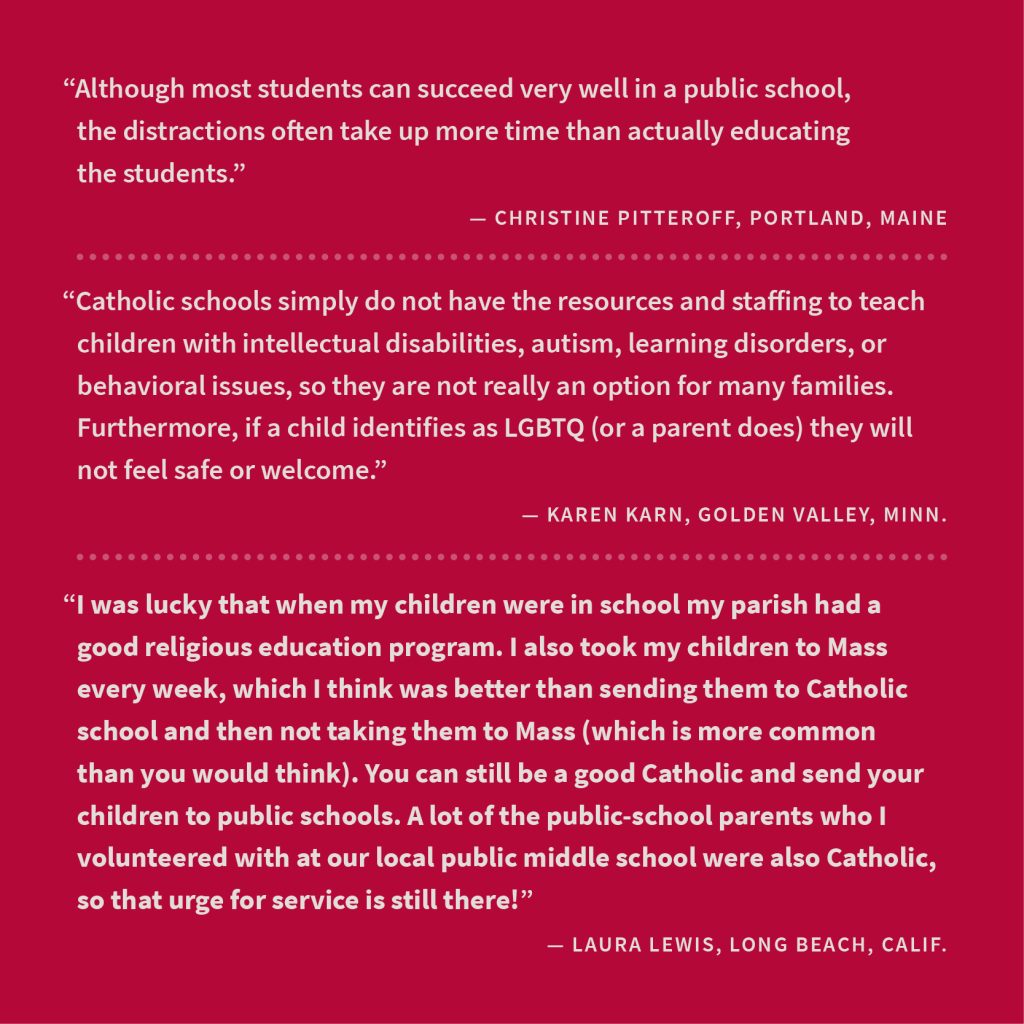
This article also appears in the September 2023 issue of U.S. Catholic (Vol. 88, No. 9, pages 25-29). Click here to subscribe to the magazine.
Image: Pexels/RDNE Stock project


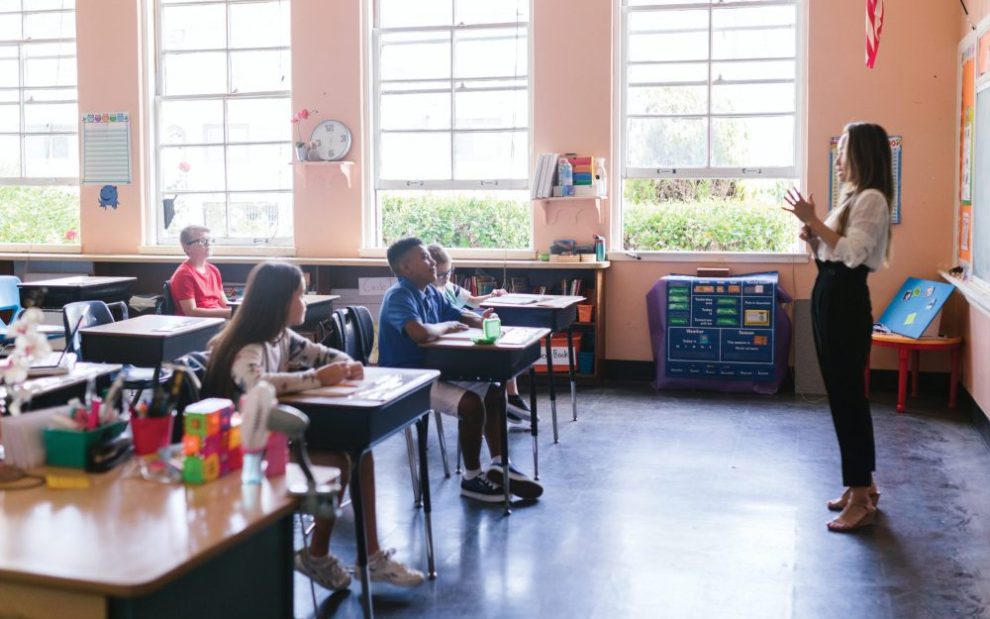


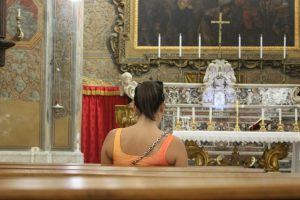








Add comment